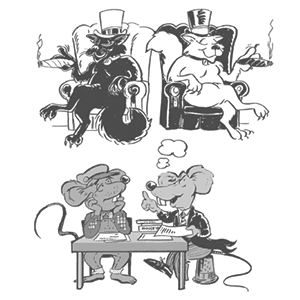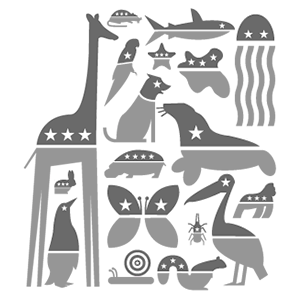A shareholder rights plan, colloquially known as a ‘poison pill,’ is a type of defensive tactic used by a corporation’s board of directors against a takeover. There are a number of such tactics, referred to as ‘shark repellents’ generally. In the field of mergers and acquisitions, shareholder rights plans were devised in the early 1980s as a way for directors to prevent takeover bidders from negotiating a price for sale of shares directly with shareholders, and instead forcing the bidder to negotiate with the board.
Shareholder rights plans are unlawful without shareholder approval in many jurisdictions such as the United Kingdom, frowned upon in others such as throughout the European Union, and lawful if used ‘proportionately’ in others, including Delaware in the United States. They are controversial because they hinder an active market for corporate control. Further, giving directors the power to deter takeovers puts directors in a position to enrich themselves, as they may effectively ask to be compensated for the price of consenting to a takeover.
read more »
Poison Pill
Hot or Not
Hot or Not was a rating site that allowed users to rate the attractiveness of photos submitted voluntarily by others. The site offers a matchmaking engine called ‘Meet Me’ and an extended profile feature called ‘Hotlists.’ It is owned by Badoo Trading Limited (a dating-focused social discovery website, founded in 2006 by Russian entrepreneur Andrey Andreev), and was previously owned by Avid Life Media (who owns a dating web site named ‘Ashley Madison’ that is geared toward married individuals looking for an additional relationship).
‘Hot or Not’ was a significant influence on the people who went on to create the social media sites Facebook and YouTube. The site was founded in 2000 by James Hong and Jim Young, two friends and Silicon Valley-based engineers. Both graduated from the University of California, Berkeley in electrical engineering, with Young pursuing a Ph.D at the time.
read more »
Mouseland
The Story of Mouseland was first told first by Canadian politician Clarence Gillis, and later and most famously by Tommy Douglas, leader of the Saskatchewan Co-operative Commonwealth Federation and, later, the New Democratic Party of Canada, both social democratic parties.
It was a political fable expressing the CCF’s view that the Canadian political system was flawed in offering voters a false dilemma: the choice of two parties, neither of which represented their interests. The mice voted in black cats, which represented the Progressive Conservative Party, and then they found out how hard life was. So they voted in the white cats, which symbolized the Liberal Party.
read more »
Duverger’s Law
In political science, Duverger’s law is a principle which asserts that a plurality rule election system (voters vote for one candidate, and the candidate with the most votes wins) tends to favor a two-party system. This is one of two hypotheses proposed by French sociologist and politician Maurice Duverger, the second stating that ‘the double ballot majority system and proportional representation tend to multipartism.’
Duverger observed the effect and recorded it in several papers published in the 1950s and 1960s. In the course of further research, other political scientists began calling the effect a ‘law’ or principle.
read more »
Moralistic Fallacy
The moralistic fallacy is in essence the reverse of the naturalistic fallacy (defining the term ‘good’ in terms of one or more natural properties). The moralistic fallacy is the formal fallacy of assuming that what is desirable is found or inherent in nature. It presumes that what ought to be—something deemed preferable—corresponds with what is or what naturally occurs. What should be moral is assumed a priori to also be naturally occurring.
Cognitive scientist Steven Pinker writes that ‘The naturalistic fallacy is the idea that what is found in nature is good. It was the basis for Social Darwinism, the belief that helping the poor and sick would get in the way of evolution, which depends on the survival of the fittest. Today, biologists denounce the Naturalistic Fallacy because they want to describe the natural world honestly, without people deriving morals about how we ought to behave — as in: If birds and beasts engage in adultery, infanticide, cannibalism, it must be OK.’
read more »
Naturalistic Fallacy
The phrase ‘naturalistic fallacy‘ refers to the claim that what is natural is inherently good or right, and that what is unnatural is bad or wrong (‘appeal to nature’). It is the converse of the ‘moralistic fallacy,’ the notion that what is good or right is natural and inherent. The naturalistic fallacy is related to (and even confused with) Hume’s ‘is–ought problem,’ which examines the difference between descriptive statements (about what is) and prescriptive or normative statements (about what ought to be).
Another usage of ‘naturalistic fallacy’ was described by British philosopher G. E. Moore in his 1903 book ‘Principia Ethica.’ Moore stated that a naturalistic fallacy is committed whenever a philosopher attempts to prove a claim about ethics by appealing to a definition of the term ‘good’ in terms of one or more natural properties (such as ‘pleasant,’ ‘more evolved,’ ‘desired,’ etc.).
read more »
Appeal to Nature
An appeal to nature is a logical fallacy used in arguments or rhetorical tactics in which a phenomenon is described as desirable merely because it is natural, or undesirable merely because it is unnatural, it is related but not identical to the naturalistic fallacy, as the latter considers defining ‘good’ in ethics in terms of any natural properties (even if not merely for being natural) as a fallacy.
The Fallacy of appeal to nature depends on a positive view about the nature, e.g. good, desirable..etc. as a foundation of the reasoning of the argument. To appeal to nature in an argument is to argue from a premise or premises claimed to be implied by the concept of nature.
read more »
Chemophobia
Chemophobia literally means ‘fear of chemicals.’ It is most often used to describe the assumption that ‘chemicals’ (i.e., man-made products or artificially concentrated but naturally occurring chemicals) are bad and harmful, while ‘natural’ things (i.e., chemical compounds that occur naturally or that are obtained using traditional techniques) are good and healthy.
General chemophobia derives from incomplete knowledge of science, or a misunderstanding of science, and is a form of technophobia and fear of the unknown. In terms of chemical safety, ‘industrial,’ ‘synthetic’ ‘artificial,’ and ‘man-made’ do not necessarily mean damaging, and ‘natural’ does not necessarily mean better.
read more »
Fine-tuned Universe
The fine-tuned Universe is the proposition that the conditions that allow life in the Universe can only occur when certain universal fundamental physical constants lie within a very narrow range, so that if any of several fundamental constants were only slightly different, the Universe would be unlikely to be conducive to the establishment and development of matter, astronomical structures, elemental diversity, or life as it is presently understood.
The existence and extent of fine-tuning in the Universe is a matter of dispute in the scientific community.
read more »










